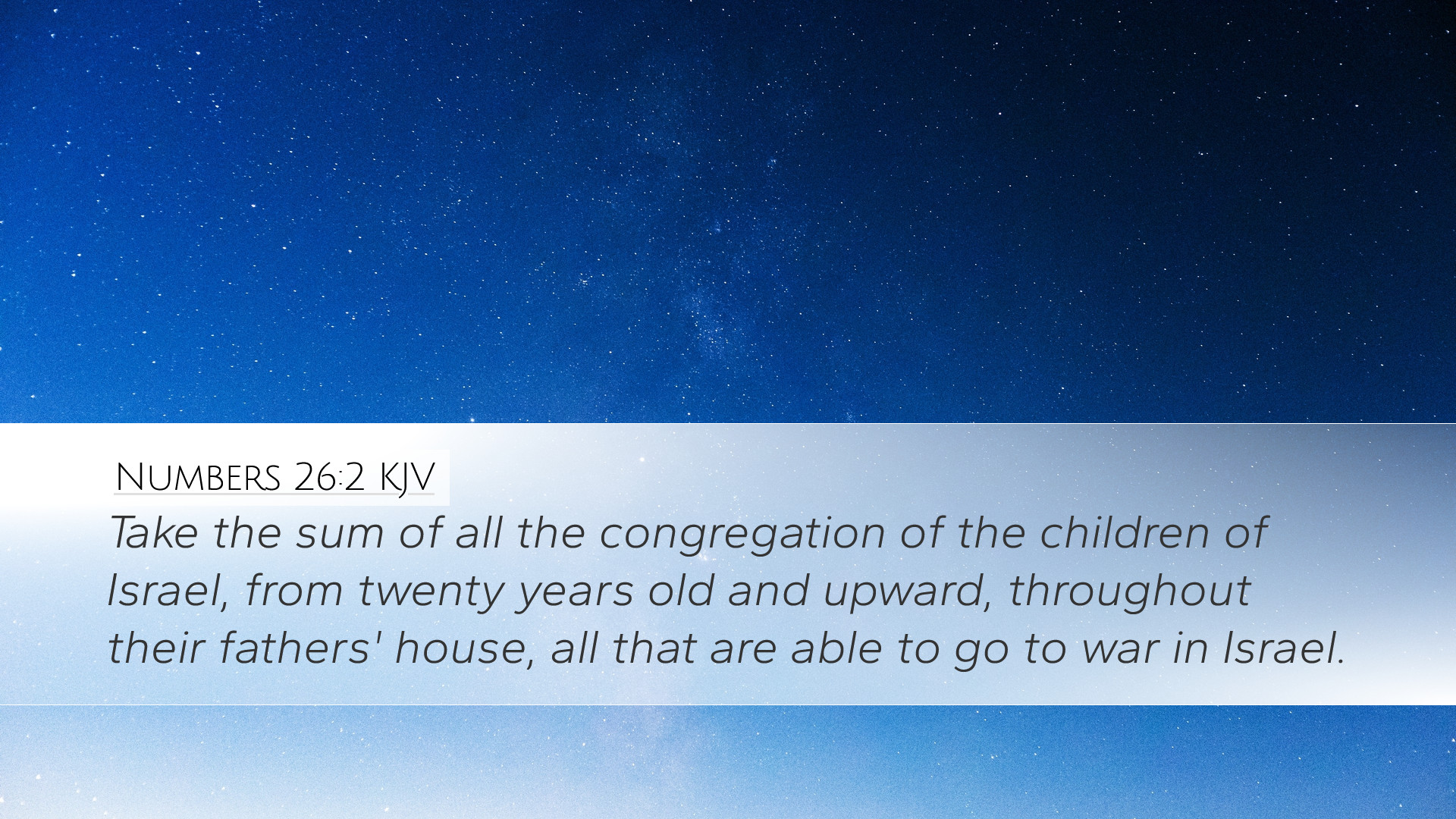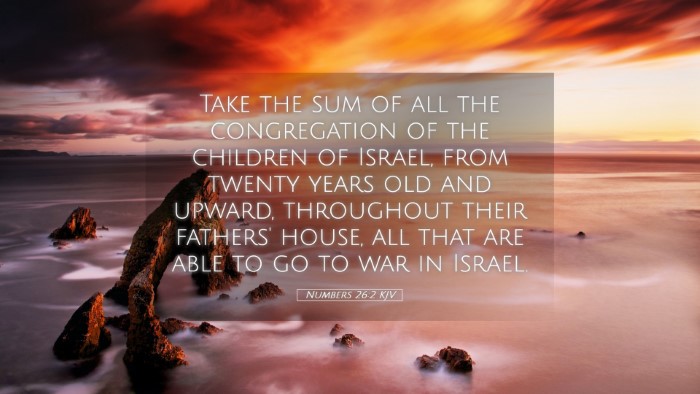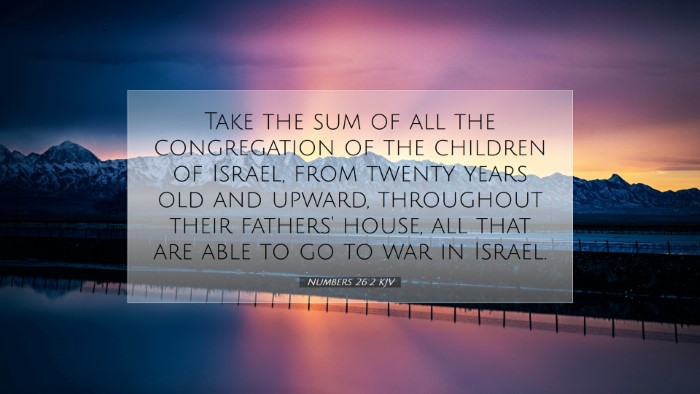Bible Commentary on Numbers 26:2
Verse: "Take the sum of all the congregation of the children of Israel, from twenty years old and upward, throughout their fathers' house, all that are able to go to war in Israel." (Numbers 26:2)
Introduction
This verse opens a significant chapter in the Book of Numbers, reaffirming God’s desire for order and preparation within the Israelite community. It emphasizes the importance of preparing for warfare and ensuring that each male citizen is accounted for in the service of the nation. This counting of men features various theological and practical implications which we will explore through insights derived from notable public domain commentaries.
Contextual Understanding
In the broader context, the Book of Numbers records the journey of the Israelites through the wilderness toward the Promised Land. The essence of Numbers can be captured in the dual theme of organization and preparation. This verse specifically marks a census that distinguishes those eligible for military service, reflecting God's prioritization of readiness and unity in the face of opposition.
Historical Significance
Matthew Henry notes that this census takes place nearly 40 years after the previous one recorded in Numbers 1. This timing marks not only the passing of a generation but also serves to prepare the new generation for entering the Promised Land. Such an undertaking illustrates God’s faithfulness in maintaining His covenant people through trials and tribulations.
Theological Implications
Albert Barnes emphasizes that the census symbolizes God's attentive care and His direction to Israel. The counting is not merely administrative but serves theological purposes by reaffirming that every individual, particularly in their military age, holds value and purpose within the community of faith.
The Role of Leadership
The leadership of Moses and Aaron is underscored in this command. Adam Clarke describes the accountability leaders hold in ensuring that every member of the community is counted. This call to ascertain who is able to fight implies a responsibility to prepare the congregation spiritually and physically for the battles ahead.
Practical Application
For modern-day pastors and theologians, this verse provides a critical reminder of the importance of readiness in spiritual warfare. Just as the Israelites were urged to prepare themselves for physical battles, believers today must be diligent in spiritual preparedness. This includes recognizing one's gifts and abilities and utilizing them in the communal life of the church.
Age and Accountability
The specification of “from twenty years old and upward” highlights a period of accountability and responsibility. Matthew Henry indicates that reaching this age symbolizes not just maturity but also the capacity to defend one’s faith and community. Remarkably, this concept translates into the life of Christ-followers today who are called to take responsibility for their faith journeys from an early stage.
The Call to Unity
Moreover, this census can be interpreted as a call to unity among the believers. In Numbers 26:2, the emphasis on being gathered as a congregation establishes that each individual, while distinct, contributes to the collective mission. Pastors can draw from this to encourage congregations to recognize their integral role in fostering a unified effort toward service and worship.
Conclusion
Numbers 26:2 serves as a powerful reminder of God’s providence and preparation for His people. It underscores the significance of accountability, readiness for spiritual battles, and the importance of unity in the body of believers. As we reflect on this verse, may it instill in us a greater appreciation for our shared mission and our individual responsibilities within the household of God.
Further Reflection
As we conclude this commentary, it is essential for pastors, students, and theologians to meditate on how the principles evident in this verse can be applied to contemporary church life. What steps can we take to ensure that we are collectively prepared to face the challenges that lie ahead? How can we foster a spirit of unity while acknowledging the diverse roles within the church? These questions are vital as we continue in our journey of faith.


